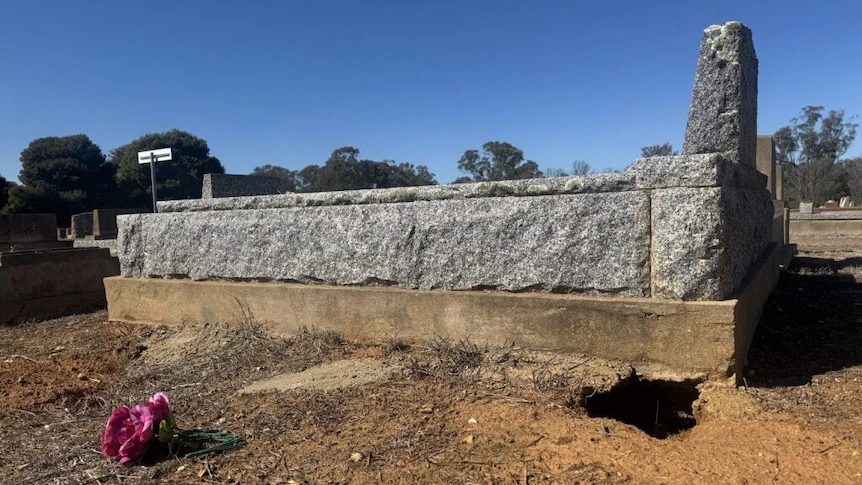By Cara Jeffery,Rachel Holdsworth
Copyright abc

A southern New South Wales mayor says it is devastating to see the damage being done by rabbits to grave sites in the area.
The Junee Shire Council was recently forced to close the town’s main cemetery for a week, which included Father’s Day, to allow a baiting program to be carried out.
The operation cost the council about $30,000, but Mayor Bob Callow said the pests were still present in large numbers.
He said it was a distressing situation for all concerned.
“Devastating for the people who have got loved ones here,” Cr Callow said.
“It’s not like there are a million holes, but the ones that are here are deep and dangerous.
Cr Callow said it was “unfortunate” that the closure of the cemetery clashed with Father’s Day.
“If it wasn’t Father’s Day, it would be some other day,” he said.
“If it did cause great concern to somebody , you know, I really am sorry about that.
“But at the same time, we’ve got to get on top of this.”
Burrows causing costly damage
Junee stonemason Dean Ryan said he often noticed the damage being done by the pests as he worked to repair headstones in cemeteries across the region.
“They’re sort of everywhere you look and graves are getting undermined,” he said.
Mr Ryan said the damage done to the graves could be costly, and it was up to the families to foot the bill.
“It could be in the thousands, depending on the level of work you got to do.,” he said.
Rabbit population booming
Jamie Gleeson, who moved to Junee with his family from Cessnock in the NSW Hunter Valley in August last year, said it was not unusual to see up to 500 rabbits a day in the town.
“I’ve never seen the rabbit population like this,” he said.
Mr Gleeson has been hunting the rabbits using nets and ferrets to bring them out of the warrens.
“In two days, we can get 80 rabbits,” he said.
Resistance to chemical controls
CSIRO research scientist Tanja Strive said chemical controls such as the calicivirus were becoming less effective.
“We know that rabbit biocontrol viruses will lose their effectiveness usually about [every] decade or so,” she said.
Ms Strive said work was being done to produce a more effective strain of the virus, but it was still in its “early stages”.
“If successful, we’re still looking at probably three years of development, followed by a registration process and rollouts,” she said.



